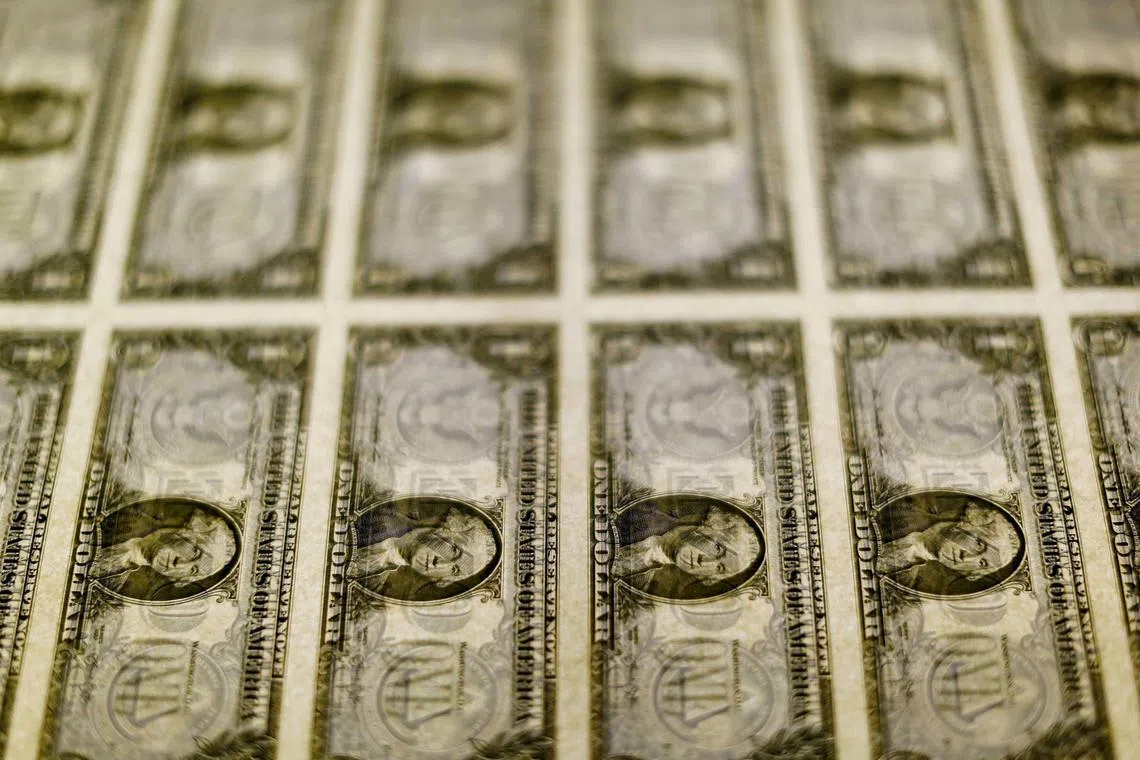Soaring US dollar raises alarm as China, Japan escalate FX pushback
Sign up now: Get ST's newsletters delivered to your inbox

A renewed advance in the dollar is sending Asian currencies to multi-month lows.
PHOTO: REUTERS
A renewed advance in the US dollar is sending Asian currencies to multi-month lows while prompting the authorities in China and Japan to step up defence of their beleaguered exchange rates.
Japan issued its strongest warning in weeks against rapid declines in the yen on Wednesday,
Resilient US economic data has persuaded at least some traders that the Federal Reserve will keep interest rates higher for longer,
That means policymakers in the region, who spent last year burning through their reserves to support local currencies, are heading back to the battlefield to take on bearish speculators.
“The prospect of higher-for-longer US rates is reigniting pressure, and investors will be cautious,” said Mr Vijay Kannan, a macro strategist at Societe Generale in Singapore.
“Specifically, EM Asia is more vulnerable to this dollar strength, given a much lower interest-rate differential and a greater exposure to a weaker China growth outlook,” he added, referring to emerging markets.
Elevated oil prices
China’s dire economic outlook, which was built on data that has been disappointing for months, is also weighing on sentiment in emerging market currencies.
The yen and renminbi are among the worst performers among Asian currencies this year.
While Japan has stopped short of using more aggressive tools to support its currency, China already sought to bolster the renminbi by asking state-owned banks to sell dollars while tightening liquidity offshore to squeeze short currency bets.
Similar currency defence measures exist elsewhere in Asia.
Taiwan’s foreign exchange reserves declined in August for the first time in nearly a year, as the monetary authority intervened in the market.
And in Thailand, the central bank has warned that rapid moves in the baht will prompt intervention.
Still, scepticism remains over whether these measures are game changers in the absence of a less hawkish Fed or a pickup in China’s economy.
Morgan Stanley turned bearish on emerging market currencies this week, saying those in Asia will be exposed to a China growth slowdown.
Mr Alvin Tan, head of emerging-market currency strategy at RBC Capital Markets in Singapore, said: “The immediate implication of the soaring US dollar is that it will prevent most Asian central banks from loosening monetary policy, out of fear of aggravating currency weakness.” BLOOMBERG


